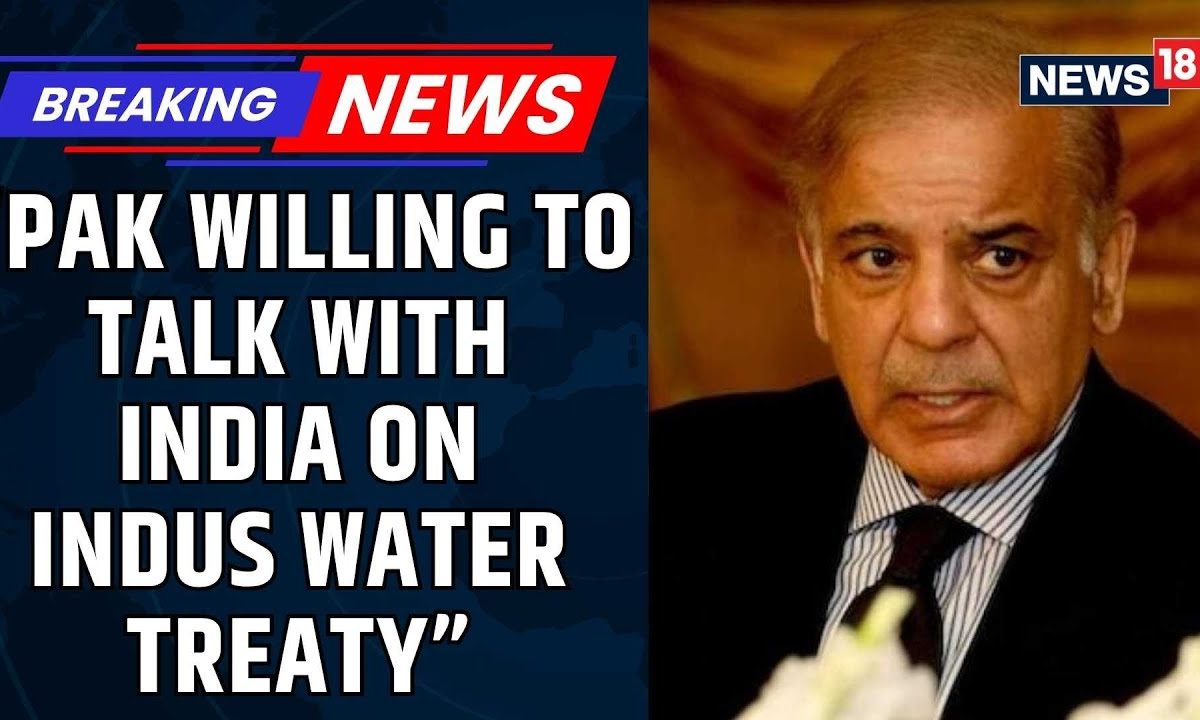

In the wake of escalating tensions and the suspension of the Indus Waters Treaty (IWT) by India, Pakistan's Prime Minister Shehbaz Sharif has expressed a willingness to engage in talks with India to address concerns and potentially restore the crucial water-sharing agreement. However, India has remained firm in its refusal to resume dialogue on the treaty, except on the issue of Pakistan-occupied Kashmir and terrorism.
The Indus Waters Treaty, brokered by the World Bank in 1960, has been a cornerstone of water management between the two nations, allocating the waters of the Indus River and its tributaries. India gained control over the Beas, Ravi, and Sutlej rivers, while Pakistan received control over the Indus, Chenab, and Jhelum rivers. Despite its success in navigating previous conflicts, the treaty has come under increasing strain in recent years.
India's decision to suspend the IWT followed a terrorist attack in Indian-administered Kashmir in April 2025, which New Delhi blamed on Islamabad. India has accused Pakistan of not taking credible action to stop cross-border terrorism, creating an environment where adhering to the treaty becomes untenable. In addition to suspending the treaty, India has also indicated plans to divert water from the western rivers, which were previously allocated to Pakistan, for domestic irrigation purposes in Rajasthan. Home Minister Amit Shah stated that India would never restore the IWT and intends to construct a canal to divert water to Rajasthan, effectively "starving" Pakistan of water.
Prime Minister Sharif, in a telephonic conversation with US Secretary of State Marco Rubio, conveyed Pakistan's readiness to discuss all outstanding issues with India, including Jammu and Kashmir, the Indus Water Treaty, trade, and counter-terrorism. He has also criticized India's suspension of the IWT, calling it a "blatant violation" and an act of "water aggression." Sharif warned that any threat to Pakistan's water rights would be met with a resolute response.
Pakistan is facing a nearly 20% shortage in water supply in the Indus basin, which is creating significant challenges for its farmers during the Kharif crop season. This water scarcity has heightened concerns about the economic and agricultural stability of the region, making the restoration of the IWT a matter of critical importance for Pakistan.
India has maintained a firm stance, with External Affairs Minister S. Jaishankar stating that the IWT would remain in abeyance until Pakistan credibly and irrevocably ceases cross-border terrorism. India has also expressed dissatisfaction with the treaty, arguing that it is heavily skewed in favor of Pakistan, as the western rivers allocated to Pakistan account for approximately 80% of the basin's total annual water volume. India has also asserted that climate change and other evolving realities necessitate a re-evaluation of the existing infrastructure and water-sharing arrangements.
The World Bank, which played a key role in brokering the original treaty, has so far declined to intervene in the current dispute, stating that its role is limited to that of a facilitator. Some experts have suggested that the World Bank could potentially mediate to de-escalate tensions, but India has expressed its desire for future discussions to be strictly bilateral, excluding third parties.
The suspension of the IWT has raised concerns about regional stability and the potential for increased conflict between the two nuclear-armed neighbors. The treaty has long been considered a vital mechanism for cooperation and conflict resolution, and its suspension could have far-reaching consequences for the management of shared water resources in the region.
As the situation unfolds, the international community is closely watching to see whether India and Pakistan can find a way to bridge their differences and restore this critical water-sharing agreement. The future of millions of people in both countries depends on it.